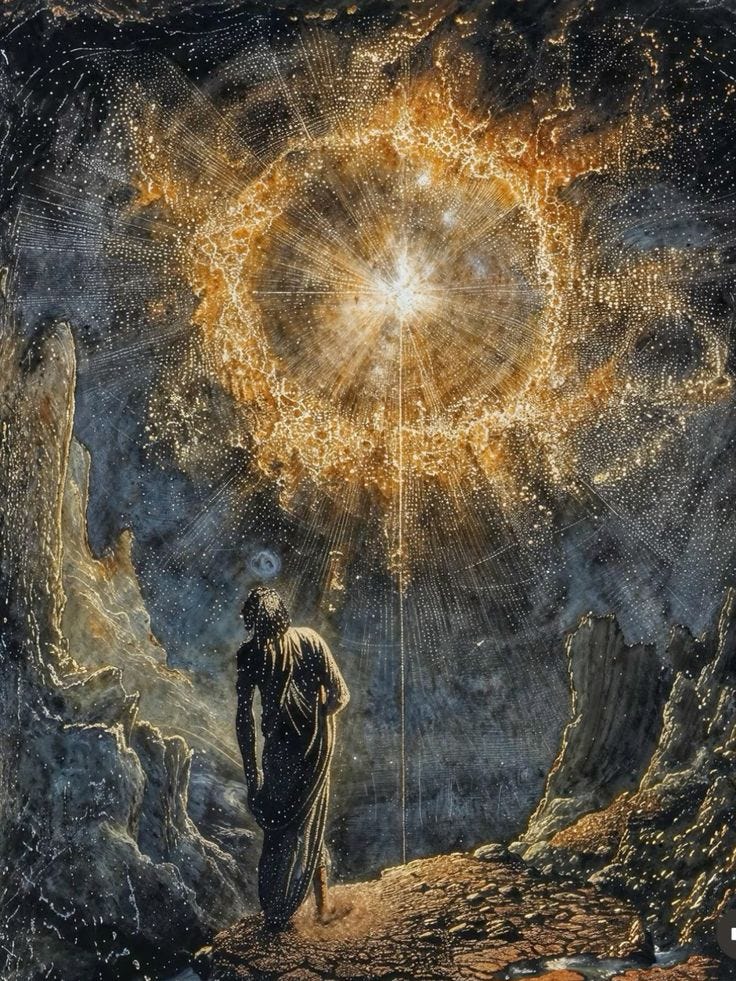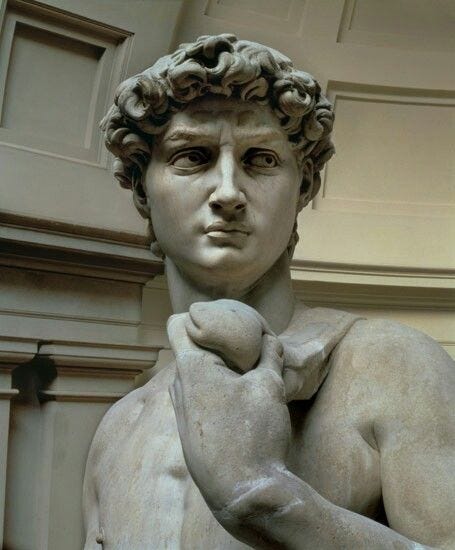CS Lewis’ Grave Warning: The Abolition of Man
Why moral relativism is the death of mankind

80 years ago, CS Lewis issued a grave warning to mankind:
If we abandon objective Truth, humanity will be destroyed.
This was not figurative language either. Lewis demonstrably proved that the death of Truth is the death of mankind. He lays this argument out in his masterpiece, The Abolition of Man. It’s short and compact, yet no other work of literature has ever diagnosed the dangers and rot the modern world’s nihilism as brilliantly as this book.
Here then, is Lewis’ grave prophecy in the Abolition of Man, and why the fate of humanity depends on defending objective Truth at all costs.
Men without Chests
The structure of Lewis’ book is based off 3 lectures he gave:
Men Without Chests
The Tao
The Abolition of Man
The first section offers a scathing critique of modern man in the 20th century.
He specifically targets modern education, which has abandoned objective truth in favor of “deconstruction,” or tearing literature apart, claiming the Great Books are filled with antiquated and oppressive ideas that hold back “human progress.” This runs counter to classical education, which Lewis advocated for.
Classical education believed objective truth exists. This type of education didn’t just teach men to intellectually study Truth, but to love it. This love of Truth built “thumos,” — a word the Ancient Greeks referred to as spiritedness. So education was about developing great-souled men who fostered a deep-rooted love of virtue, Truth, and the Good above all. Such love built heroes, and such heroes built civilization.
Yet Lewis warns modern education has abandoned this mission.
Modern education’s embracement of moral relativism — which denies truth — guts not just the mind of man, but his very soul itself. He loses his capacity for love, spiritedness, and greatness. He loses his chest.
In Lewis’ own words:
“In a sort of ghastly simplicity we remove the organ and demand the function. We make men without chests and expect of them virtue and enterprise. We laugh at honour and are shocked to find traitors in our midst. We castrate and bid the geldings be fruitful.”
The imagery is not accidental. If you destroy Truth, you castrate man. You destroy his thumos and the very virility of society itself. Everything crumbles.
Next, Lewis makes his famous argument for objective truth.
Defending the Tao
Lewis begins his defense of objective truth by appealing to natural law, which he refers to as the Tao.
He points out that across time, place and culture, there are certain universal moral truths that have always existed:
Do not steal
Do not murder
Do not commit adultery etc.
Given these universalities of human nature, he reasons there must be a universal moral law written on the heart of man. Lewis calls this law the Tao.
Next, Lewis shows how this moral law has evolved over centuries.
For example, “do not kill,” developed to Confucius’ “Treat others how you want to be treated,” which developed to Christ’s “Love thy neighbor as thyself.”
This moral development implies an unraveling transcendental Truth, a Truth that not only exists, but can be known. It’s been this very pursuit of Truth that built civilization, and taught man the fundamental questions of how to live a good and meaningful life.
In this light, the real dangers of moral relativism become clear:
To suggest that Truth doesn’t exist is to deny the validity of mankind’s moral development. The West’s intellectual growth from the bloody Bronze Age of Homer’s Iliad, to the Socratic pursuit of Truth in the face of death, and finally Christ’s divine revelations on the cross, are all but gutted in one fell swoop...
Moral relativism doesn’t “liberate,” us from morality, rather it opens a Pandora’s Box of chaos that promises deconstruction of civilization.
Still, Lewis warns the danger is worse than the death of society. His warning is that relativism is the death of man itself.
Here’s his jarring conclusion on why relativism is the death of man.
The Abolition of Man
CS Lewis’ fear of moral relativism wasn’t just that “everything is permitted,” as Dostoevsky said. He doesn’t just fear a world where evil is accepted. He points out that, logically, the abolition of truth leads to the abolition of mankind.
How so?
Well, he says that truth can only come from 3 places:
God/objective transcendent authority
Social construct amongst man
Biology
If number one is denied, then that means truth is either a social construct, or a result of biological hardwiring via evolution.
Yet as The Tao shows us, natural moral law occurs across time, place, and culture. This proves that Truth is not a social construct.
But what if Truth is just biology?
What if natural law is just biological conditioning in DNA — a product of millions of years of evolutionary development, teaching us patterns of behavior to survive? This would mean truth exists in our DNA, but not objectively in reality. We could change our DNA, and change our morality, so Truth, Good, and Evil are still relative in this view.
Still, why does this lead to the death of man?
Lewis points out that if truth is relative, then only power is real. Life is merely domination, and man’s ultimate conquest is nature. We use science in the name of progress to make a better world, and conquer nature.
Yet if man’s mission is to conquer nature, then what is the final conquest?
It would be the conquest of death and human nature. Man would seek to “free,” himself from morality by using science to rewrite his DNA. To live in a world “beyond good and evil.”
Here’s Lewis’s conclusion:
“The final stage is come when Man by eugenics, by pre-natal conditioning, and by an education and propaganda based on a perfect applied psychology, has obtained full control over himself… Stepping outside the Tao, they have stepped into the void. Nor are their subjects necessarily unhappy men. They are not men at all: they are artefacts. Man's final conquest has proved to be the abolition of Man.”
Put simply, human nature is fundamentally tied to Truth, Goodness, and Evil. Deny Truth, and morality collapses, and man along with it. This is the goal of transhumanism today — use science to “enhance,” our nature, such that man can be free of Good and Evil and live forever.
One is reminded of the serpentine whisper to “become like gods.”
Conclusion
Stark as this warning is, Lewis was nothing if not a man of hope. He realized the threat of relativism is grave, but there is an escape:
“The task of the modern educator is not to cut down jungles but to irrigate deserts.”
Irrigate deserts means bringing life to a barren land — instilling thumos into men without chests.
Man needs to rediscover great literature, grounded in a love for Truth. You cannot merely tell a child, “be courageous.” You must read him the myth of St. George and the Dragon, such that he learns to become a dragon slayer. The Great Books, grounded in the Good, build men with chests.
Ultimately, human life only has meaning in relation to Truth. To seek it, learn it, and love it, is to be human in the truest sense. Even in a world of relativism, the Truth is always there, waiting to be rediscovered. And that rediscovery may just be the full-hearted and glorious absolution of man.
Thank you for reading!
Subscribe for free if you would like weekly emails on the Great Books, and their life lessons on Truth, Beauty, and Goodness
And remember:
Paid members receive an additional members only email every week!







I read Abolition of man last year at first it difficult to understand at what getting at but after rereading it and thinking about more there is a reason the book is still relevant so many years later. I’m now more into Lewis than before. I’ve been a Christian(Lutheran) fir about 20 plus years but sadly never got into Lewis but I’m glad now I have
Great prediction from 80 years ago as it continues to unfold each and every day